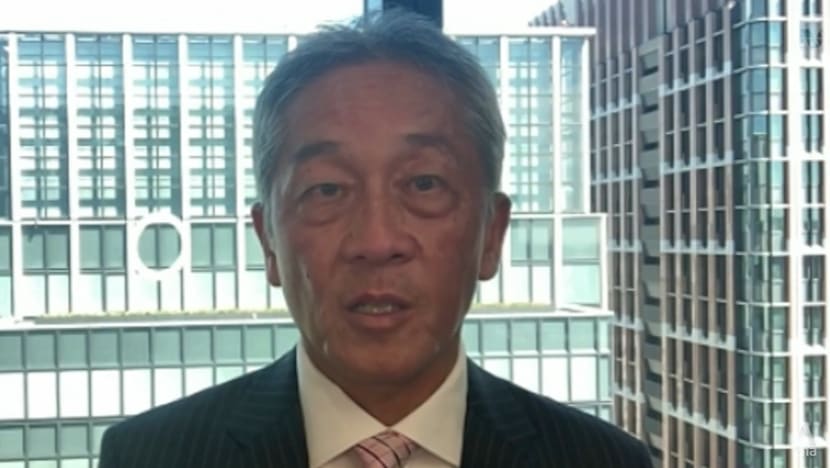Mitsubishi Power CEO on energy transition and rising data centre demands
Takao Tsukui highlighted the challenges and opportunities facing the clean energy technology manufacturing sector amid shifting global dynamics, in an interview with CNA’s Elizabeth Neo.

Mitsubishi Power President and CEO Takao Tsukui speaking to CNA.

This audio is generated by an AI tool.
The widespread adoption of artificial intelligence has driven rising demand for data centres globally, significantly increasing energy consumption.
The International Energy Agency (IEA) said data centres and data transmission networks each account for about 1 to 1.5 per cent of global electricity use, with consumption expected to climb further.
It projects that electricity demand from data centres worldwide will more than double between 2024 and 2030 to about 945 terawatt-hours (TWh), slightly more than the entire electricity consumption of Japan.
Generative AI will be the most significant driver of this increase, the agency said. AI is responsible for around 5 to 15 per cent of data centre power use in recent years, but that figure could reach up to 50 per cent by the end of the decade.
At the same time, rising trade barriers are also transforming Asia's energy landscape.
Facing high tariffs, Vietnam, Japan, South Korea, Thailand and the Philippines have offered to increase imports of liquefied natural gas (LNG) from the United States to ease trade tensions.
The tariffs have raised concerns that they could undermine countries’ long-term climate goals and energy security.
With the industry already grappling with rising prices, along with AI in the mix, the transition to clean energy risks slowing down.
EXPANSION
Mitsubishi Power, which develops solutions for energy transition, said soaring electricity demand has spurred greater investment in large generation assets.
In Southeast Asia, the brand – a subsidiary of Japanese company Mitsubishi Heavy Industries – is building three large power plants in Singapore, one in Malaysia and another in Vietnam.
“Gas is a realistic energy transition from coal, and it's very complementary with renewables. So, we're seeing both in progress,” said Takao Tsukui, its president and CEO.
“We've already started investments towards large-scale gas infrastructure, largely impacted by AI demand.”
Tsukui acknowledged that tariffs imposed by the US government have caused some disruptions to the clean energy technology manufacturing sector.
As a key supplier of gas turbines, Mitsubishi Power is working to limit the impact.
“(There are) some impacts to the pricing. So far, it's selling down a little bit. We are managing it … discussing with customers,” he said.
ENERGY TRANSITION
Experts have said natural gas can contribute to short-term emissions reductions by facilitating the transition away from coal.
In many countries, gas has already replaced coal as the preferred fuel for electricity generation amid the shift towards decarbonisation, according to the United Nations Environment Programme.
Environmental advocates stressed that countries will need to pivot from gas in the future to meet climate goals as it still emits carbon dioxide – albeit up to 60 per cent less than coal.
Tsukui said Mitsubishi Power is laying the groundwork by developing technologies that convert both gas and renewable sources into electricity.
“We are … at the same time co-firing hydrogen with our gas turbines, or putting carbon capture (alongside) the gas turbines,” he said.
“So, when customers who have invested in gas infrastructure want to convert into more carbon efficient infrastructure, then (we can facilitate) hydrogen gas turbine conversion … or add carbon capture (technology for them),” Tsukui added.
“A lot of countries investing in gas acknowledge that gas will not be a stranded asset in the future, and we're making sure that our technology is ready when the customers are ready.”














